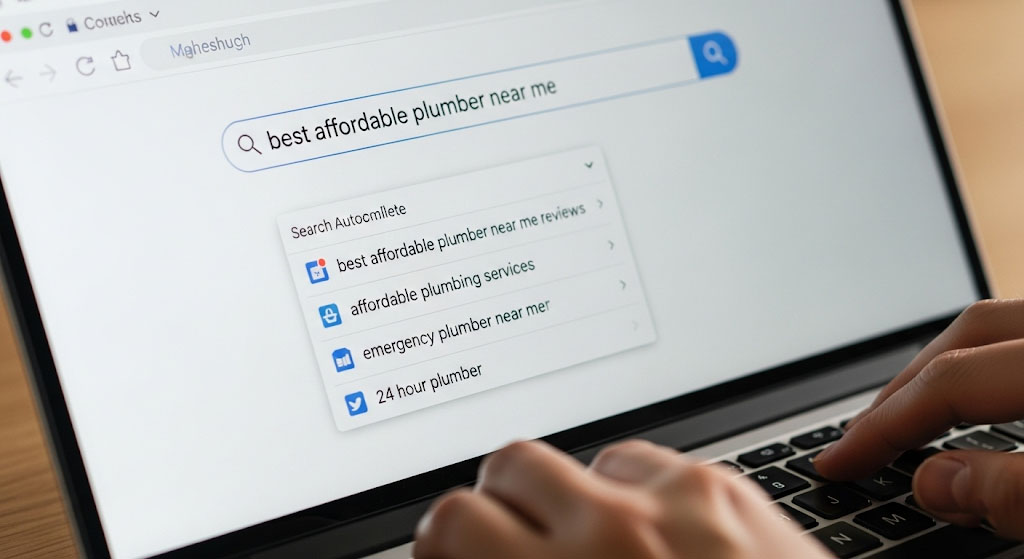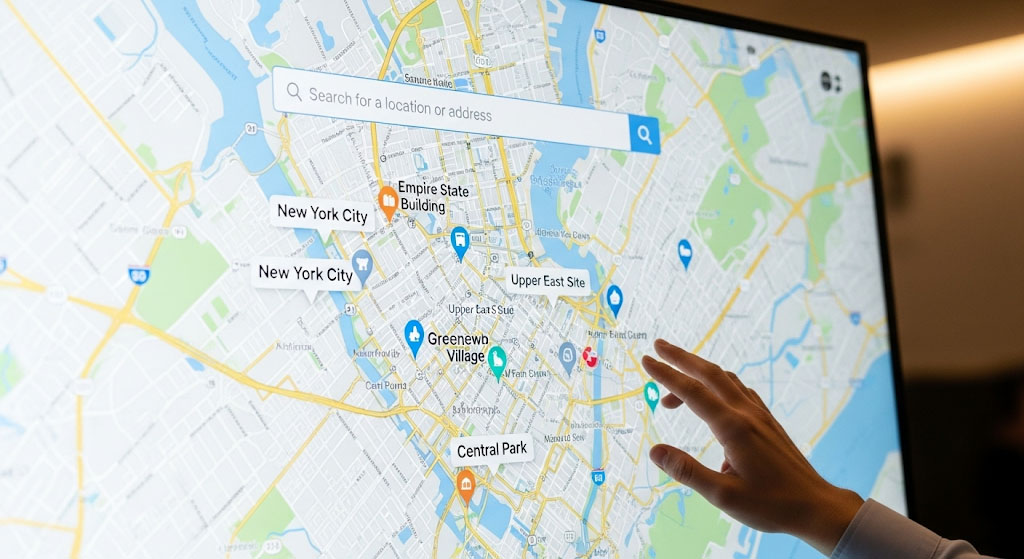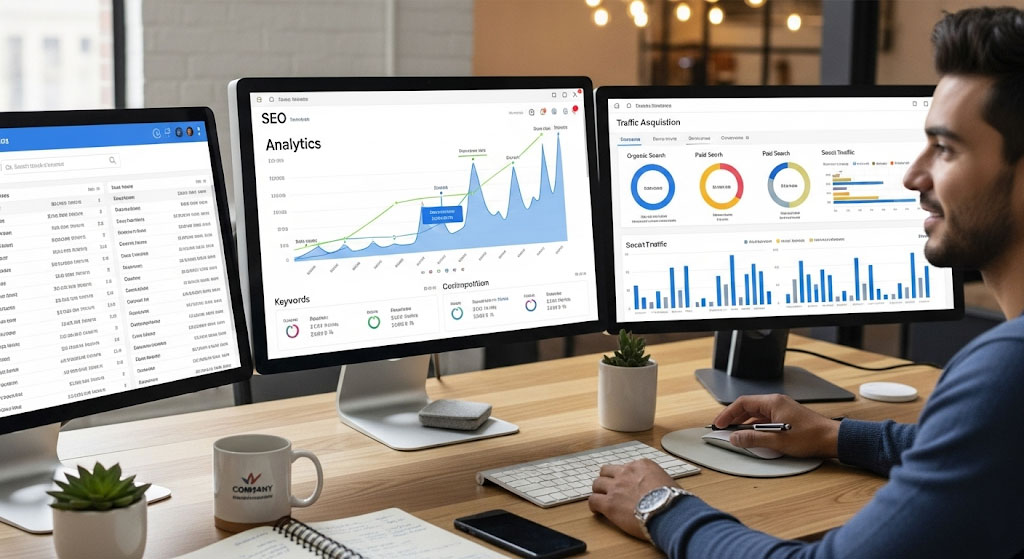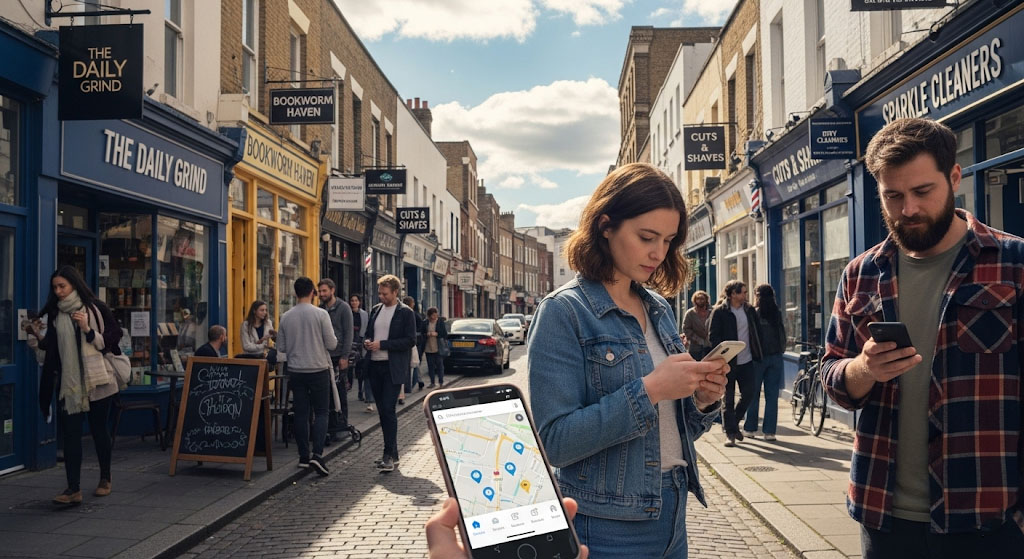Doing research for local SEO is one of the most powerful ways to make your business visible where it matters most right in your community.
Google and other search engines are designed to connect users with nearby solutions. If your content does not include the right local keywords, your website can easily be overlooked by people who are ready to buy from businesses like yours.
When you uncover and use the exact phrases your customers type such as “emergency dentist in Dallas” or “family restaurant near Central Park” you target real search behavior instead of guessing. This strategy improves your chances of showing up in google maps, local “near me” results, and mobile searches.
The result is more qualified traffic, higher trust from local customers, and a stronger online presence that puts you ahead of competitors who skip this crucial step. For more insights on startup tech and digital growth, explore the Rteetech homepage.
Why Research for Local SEO is Essential

Performing detailed research for local SEO is critical because search engines focus heavily on location and intent. Almost 80 percent of consumers use the internet to find local businesses every week. If your business does not carry optimized keywords, you lose opportunities to competitors.
Local SEO keyword research ensures that your website is visible to people who are already looking for your services in a specific geographic area. It does more than simply increase search visibility, it creates trust, improves map rankings, and connects you with an audience that is ready to take action.
I have worked with dozens of small businesses that struggled to appear in local searches until they applied structured keyword research. Through real campaigns, I observed how focusing on local search behavior doubled website traffic and lifted map rankings.
Step 1: Define Core Topics and Services

The first step in research for local SEO is identifying your primary services in natural language. Think about what your customers actually type into search engines.
For example:
- Instead of “automobile maintenance,” use “car repair.”
- Instead of “culinary establishment,” use “family restaurant.”
Practical Tip
Type your service into Google and scroll to “related searches” or observe “people also ask.” These are valuable insights for local SEO keyword research because they reflect searches from real people.
Step 2: Add Local Modifiers

Modifiers are additional words that show intent or urgency. They take generic terms and make them specific. As a certified SEO strategist, I have tested how keyword modifiers like ‘best’ and ‘affordable’ improve click‑through rates in competitive local niches.
Examples:
- Urgency: “emergency plumber,” “24 hour electrician.”
- Price: “affordable dentist,” “cheap movers.”
- Best quality: “top rated salon,” “best Italian restaurant.”
Adding these terms during keyword research for local businesses helps capture high intent traffic that is ready to convert.
Step 3: Insert Location Indicators

Search engines cannot associate your service with a location without clear signals. Successful research for local SEO means combining core services with location tags such as:
- City names (Dallas, Mumbai, London).
- Neighborhoods (Downtown, Eastside, South Delhi).
- Landmarks (near Central Park, by Union Station).
This targeting increases your chance to rank on Google Maps and appear in the “near me” searches that drive local traffic.
Step 4: Understand Search Intent

Every keyword has intent behind it. To succeed with research for local SEO, you must categorize search intent into stages:
- Informational: “How to fix a leaking pipe.”
- Comparative: “Best plumber in Chicago.”
- Purchase ready: “Book emergency plumber Chicago now.”
In practice, I have guided clients to create content mapped specifically to informational, comparison, and transactional intent. Aligning their keywords with buyer stages consistently led to higher lead quality and stronger local rankings.
An effective keyword plan covers all three types so potential customers find you at different stages of their decision journey.
Step 5: Analyze Local Competitors

Competitor analysis is an important element of SEO keyword research step by step. Begin by searching your target keywords. Identify which competitors consistently rank at the top.
Examine their:
- H1 and H2 headings.
- Google Business Profile optimization.
- Review volume and quality.
- Coverage of nearby neighborhoods.
Identify what they miss. For example, if competitors highlight price, you can showcase trust and expertise instead. This tactic ensures your competitor analysis SEO local strategy delivers differentiation.
Step 6: Choose the Best Tools for Local SEO

Tools provide essential data but relying on only one tool is not sufficient. For comprehensive research for local SEO, combine multiple sources:
- Google Keyword Planner: For authentic search volume.
- Google Trends: To detect seasonal changes.
- Ahrefs or Semrush: For deeper competitor keyword gaps.
- Moz Local or BrightLocal: To audit citations and online presence.
Using these as part of your best tools for local SEO approach ensures reliable insight for effective decision making.
Step 7: Optimize for Voice Search and Mobile Behavior
Voice and mobile searches represent a growing part of local discovery. People phrase searches differently in voice.
- Text: “Italian restaurant Chicago.”
- Voice: “Which Italian restaurant in Chicago is open right now.”
For success in local SEO keyword research, include conversational FAQs and natural language phrases. Optimizing for mobile also ensures fast loading, clear maps integration, and updated business hours.
Step 8: Create Hyperlocal and Relevant Content
Go further than just standard keywords. Write articles and guides that serve specific communities. Examples:
- “Plumbing tips before the rainy season in Houston.”
- “Where to find organic vegetables in East London.”
Content tailored at this level helps in seo for small business local ranking and makes your website stand out.
Step 9: Review Mining and NAP Consistency
Customer reviews on Google or Yelp reveal authentic search phrases. Extract recurring terms customers use and integrate them into your research for local SEO.
Also, confirm that your Name, Address, and Phone Number (NAP) are consistent across all listings. Discrepancies reduce local trust signals. I encourage businesses I consult to monitor customer language and cross‑check their NAP details across directories. Consistency in this area builds long‑term trust with both users and search engines.
The Journey Behind My Work:
I have been engaged with SEO for over seven years and have worked extensively with small businesses to improve their rankings. Through real‑world projects I tested different methods of outbound linking and local strategies to understand what drives lasting results.
I hold certifications in advanced technical SEO and specialize in link strategies, local optimization, and content development. My expertise allows me to implement both fundamental and advanced ranking methods that serve local businesses effectively.
I have contributed to SEO forums, participated in Google Search Central community discussions, and published insights on platforms like Moz and Ahrefs. Through consistent collaboration I have built a reputation as a trusted voice in the SEO field.
I apply transparent, ethical SEO practices and reference credible resources such as Google Search Central and Moz. Results can vary depending on competition and market changes but my approach prioritizes sustainable growth built on trust and integrity.
Conclusion
Effective research for local SEO requires structured steps. Identify core topics, add modifiers, integrate location terms, analyze competitors, and use the best tools. Remember to align searches with intent, include voice friendly content, and focus on building trustworthy signals.
When these practices are applied consistently, they transform a business from invisible to highly visible in local searches and map results.learn more about our SEO for business growth strategies instead of just “Rteetech LCC”
FAQs
What are common mistakes to avoid in research for local SEO?
Many businesses overuse keywords without focusing on intent or location, which reduces relevance and rankings.
Is voice optimization necessary for small businesses?
Yes, many local queries come from mobile devices through voice searches, so adapting keywords to natural questions is important.
Do seasonal trends influence local SEO keyword research?
Yes, terms like “tax consultant near me” or “summer auto service” rise heavily during relevant months.
Should local businesses use more than one keyword tool?
Yes, different tools supply different insights. Combining several ensures accuracy in data for decision making.
How does competitor analysis improve local SEO?
It highlights gaps that you can fill, allowing your business to offer unique value compared to competitors already ranking.



